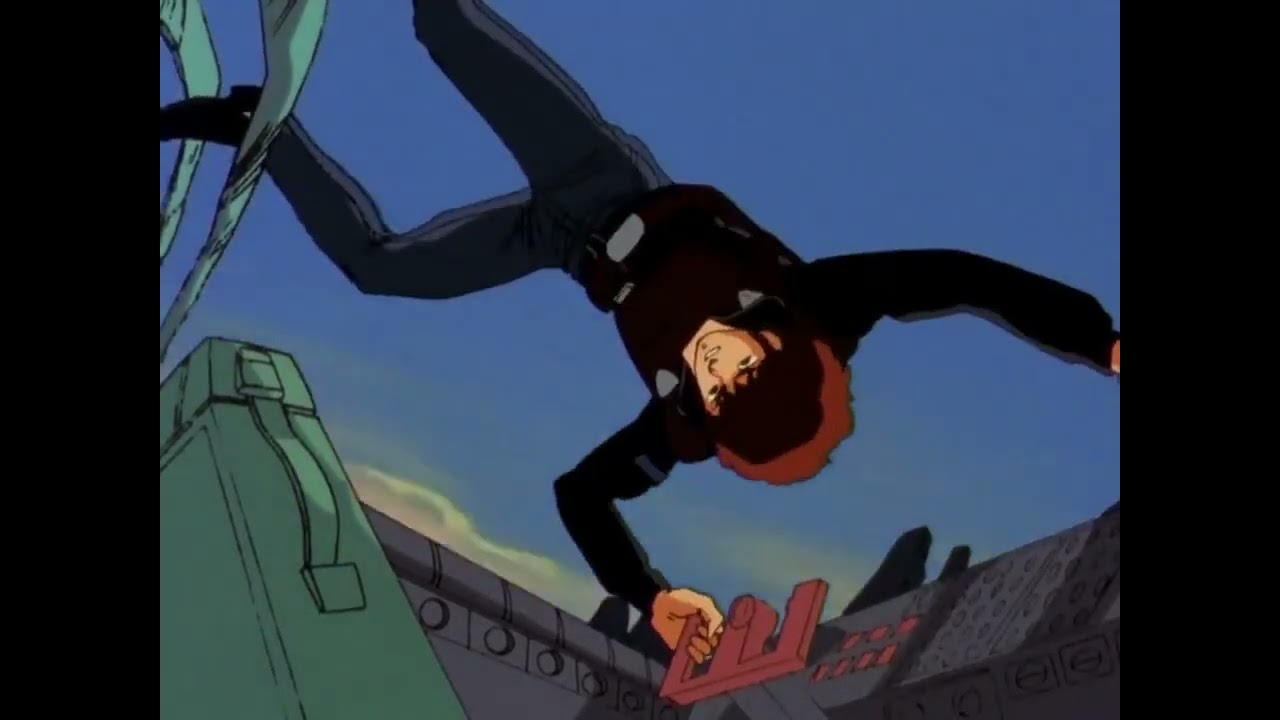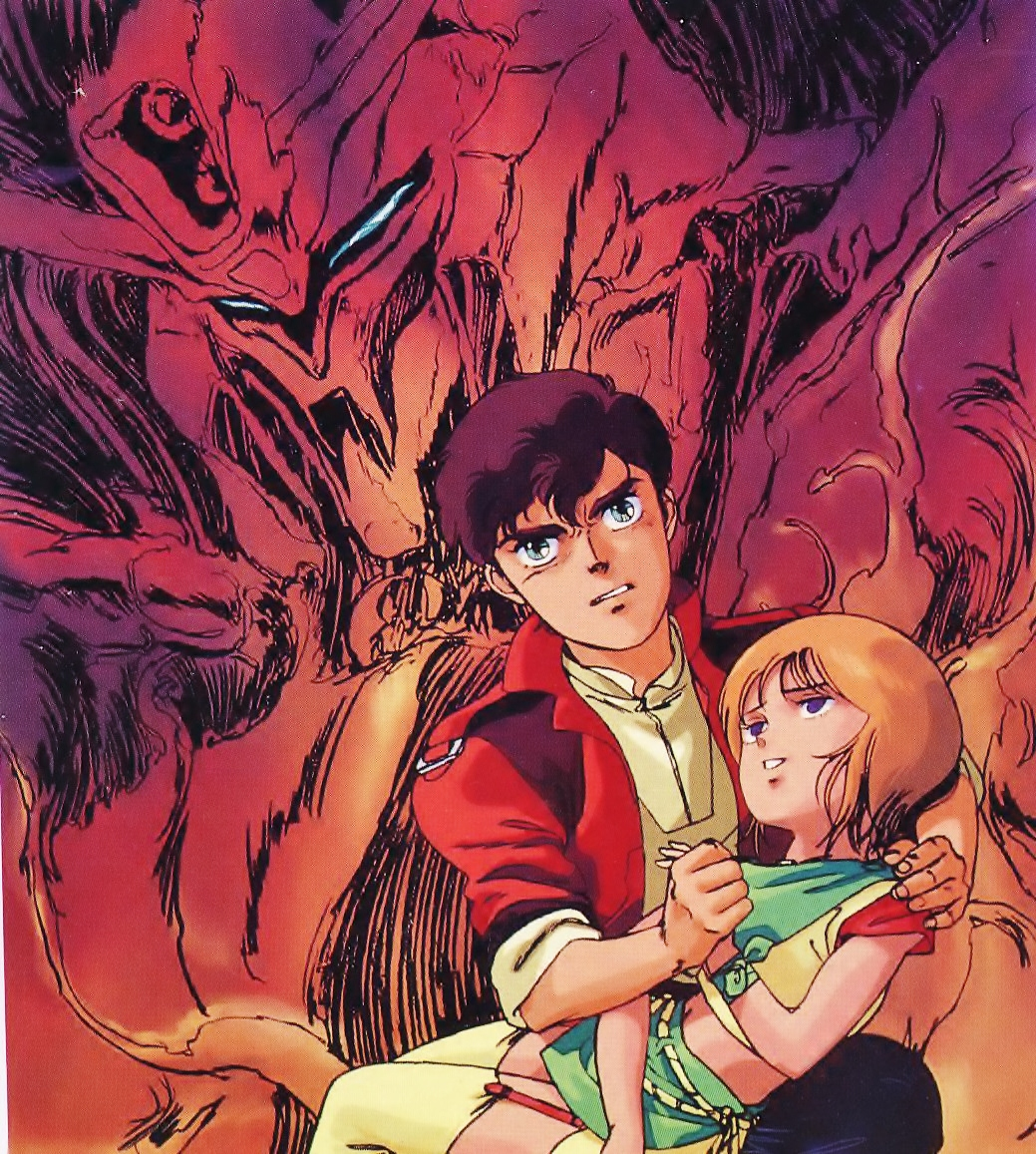The concept of heroism has been a constant in human narrative, with the figure of the tragic hero representing one of the deepest and most complex forms of this archetype. In the Gundam franchise, the protagonists are not simple figures of victory; they are characters trapped in moral and existential dilemmas that reflect the contradictions inherent in the human condition. The cases of Amuro Ray and Judau Ashta, two of the saga's most iconic heroes, serve as ideal examples to explore how Gundam reinterprets the figure of the tragic hero, who, despite their good intentions and feats, cannot escape the conflicts and sacrifices that define them. Through these characters, the series offers a profound philosophical vision on sacrifice, fatalism, and the meaning of struggle, placing them in a context that transcends the conventions of action anime.
The Figure of the Tragic Hero in Philosophy and Literature
To understand heroism in Gundam from a philosophical perspective, it is necessary first to define the concept of the tragic hero. This figure, deeply influenced by Greek tragedy, is marked by their struggle against forces beyond their control, whether destiny, society, or even their own nature. The tragic hero is often an individual of great nobility and virtues, but whose actions, even the best ones, tend to lead them to their downfall. This constant struggle between heroic action and the inevitable consequences of that action, such as suffering or death, is what defines the tragic hero.
From a philosophical perspective, the tragic hero faces the inevitability of their fate, which they cannot avoid, even though their decisions and efforts lead them to confront a reality of suffering and sacrifice. Existentialist philosophers like Jean-Paul Sartre and Albert Camus argue that human beings, despite their freedom, are trapped in an absurd world where their actions, no matter how much they seek meaning, often result in nothing or tragic consequences. Similarly, the tragic heroes of Gundam fight to find a purpose and a path in a world where wars, destiny, and personal losses constantly get in the way.
Amuro Ray: The Struggle Against Fatalism
Amuro Ray, the protagonist of Mobile Suit Gundam, is one of the franchise's most iconic characters and a clear example of a tragic hero. At the beginning of the series, Amuro is a young man who is dragged into war against his will. His evolution as a Mobile Suit pilot and leader in the fight against the forces of Zeon mirrors the classic hero's journey, but in a context marked by tragedy.
Amuro's tragedy begins with his participation in the war, a conflict over which he has no control. Although initially an innocent young man, his ability to pilot the Gundam makes him one of the Federation's main defenders. However, his growing prominence is marked by personal loss, psychological suffering, and alienation. The war not only robs him of loved ones, like his friend Lalah Sune, but also leaves him with an emotional burden that haunts him throughout the series. His relationship with his rival, Char Aznable, becomes a kind of mirror to his own internal struggle. Both characters are trapped in a cycle of confrontations that, despite their victories, offer neither true satisfaction nor peace.

Amuro represents the paradox of the tragic hero: a man whose struggle is noble, but who is simultaneously condemned by the forces around him. His sacrifice is inevitable, and although his fight makes him a symbol of hope for others, his fate is marked by frustration and loneliness. This fatalism, one of the cornerstones of classical tragedy, manifests in his character: although he seeks peace, war consumes him, and though he seeks human connection, war isolates him even more.
Judau Ashta: The Hero of Personal Sacrifice
In Mobile Suit Gundam ZZ, Judau Ashta appears as the protagonist, and while he shares some traits with Amuro, his approach to heroism and personal sacrifice offers a different but equally tragic perspective. Judau is a young man who, unlike Amuro, begins his journey as a character less concerned with morality or justice. However, over the course of the series, his character evolves from an impulsive, selfish man to a leader committed to the well-being of others.
Judau's tragedy unfolds through his relationships with those around him, especially his crewmates. Although his heroic actions are genuine and selfless, the price of his sacrifice is reflected in the suffering of those who follow him. Like Amuro, Judau faces a destiny that places him in a position where his heroic actions result in personal losses. His participation in the war and his internal struggles lead him to make decisions that, although right in the context of his values, end up marking his life with deep pain.

Judau's sacrifice is tied to the notion of fatalism that characterizes the tragic hero: although he does everything he can to prevent others from suffering, his actions follow a course that, ironically, leads him to lose what he holds most dear. By the end of the series, Judau is marked by the consequences of his decisions, trapped in a cycle that reflects the paradox of the tragic hero: one who, while fighting for an ideal, cannot escape the dark realities of their existence.
Sacrifice as the Essence of Tragic Heroism
Sacrifice is a recurring theme in Gundam, and both characters, Amuro and Judau, exemplify it in complex ways. The tragedy of these heroes lies in their capacity to give everything for a greater cause, yet without being able to avoid the personal losses that such a cause entails. The philosophy of sacrifice extends beyond war: it is an act of total surrender, a constant tension between duty and the consequences of actions. In this sense, both Amuro and Judau reflect the idea that heroism is not only a path to glory, but also a path to self-destruction, a central theme in tragedy.
Sacrifice in Gundam is also marked by the characters' internal struggles. While other classic heroes may find some form of peace at the end of their journey, in Gundam, sacrifice is never presented as a definitive solution. The tragic heroes of Gundam do not achieve inner peace or salvation; rather, they remain trapped in the moral and emotional ambiguity that marks their existence.
Tragedy as a Form of Heroism
Ultimately, heroism in Gundam is not about triumphing over evil, but about facing the inevitable consequences of struggle. Characters like Amuro Ray and Judau Ashta embody the tragic heroism in a profoundly philosophical way, reflecting the paradox that, in life, the greatest and bravest decisions often lead to the most painful consequences. Through their struggles, Gundam invites us to reflect on the meaning of heroic actions and how these are inextricably linked to suffering and fatalism.
The figure of the tragic hero in Gundam is a profound reflection of internal struggle, sacrifice, and the inevitable consequences of our decisions. Through characters like Amuro Ray and Judau Ashta, the series invites us to question the true nature of heroism, showing us that greatness is not always measured by triumph, but by the ability to face adversity despite the personal cost. What do you think about the sacrifices these heroes face? Do you believe that heroism always comes with a price? I would love to hear your thoughts on how these themes are reflected in other Gundam characters or other narratives. Leave me your comments, and let's continue the conversation!


